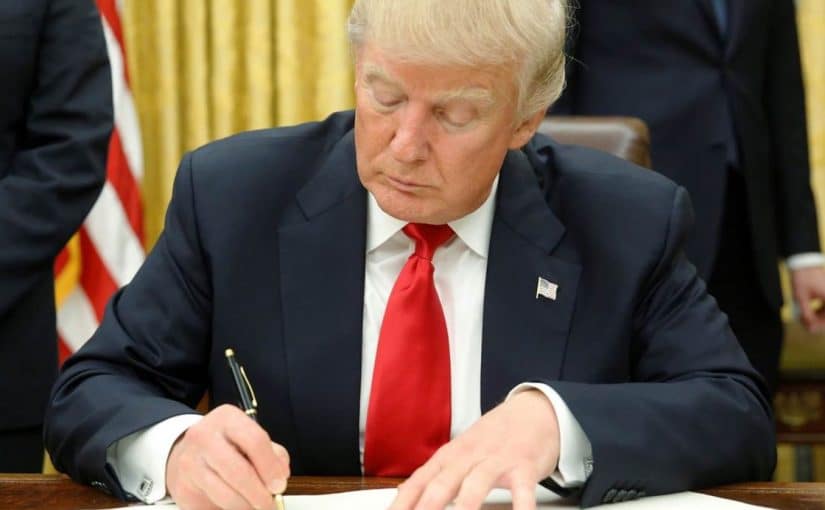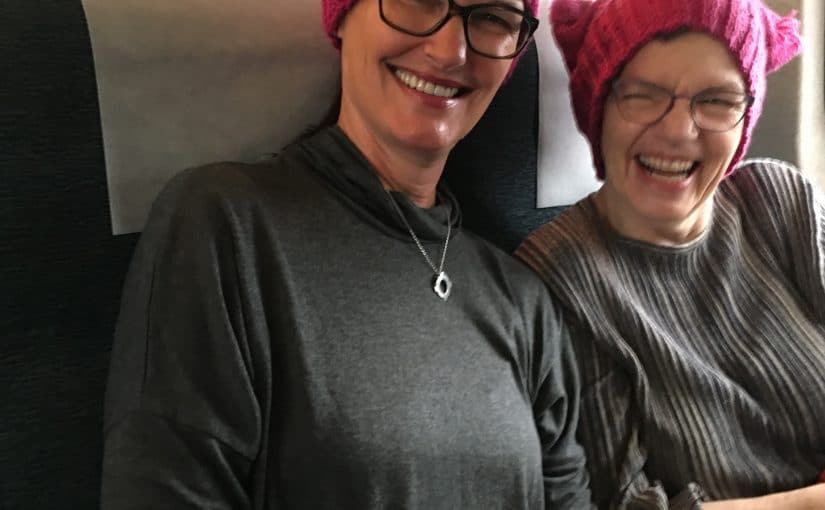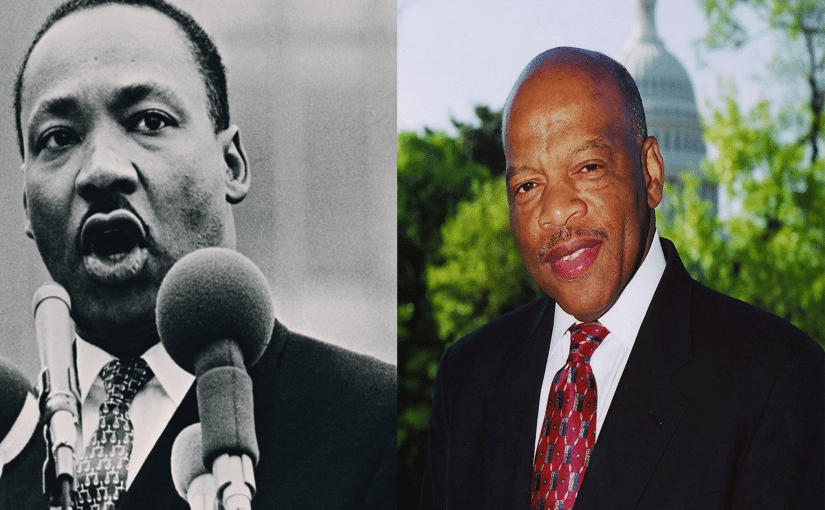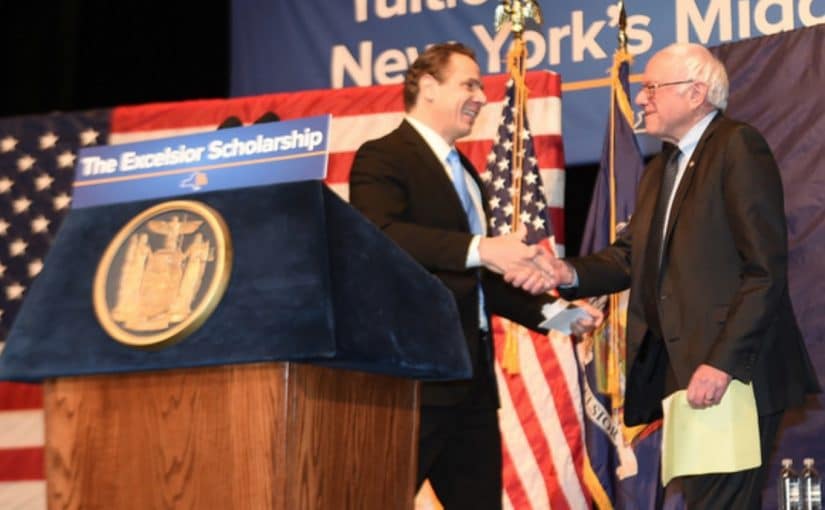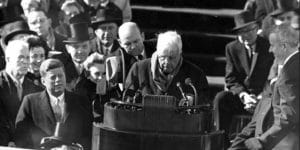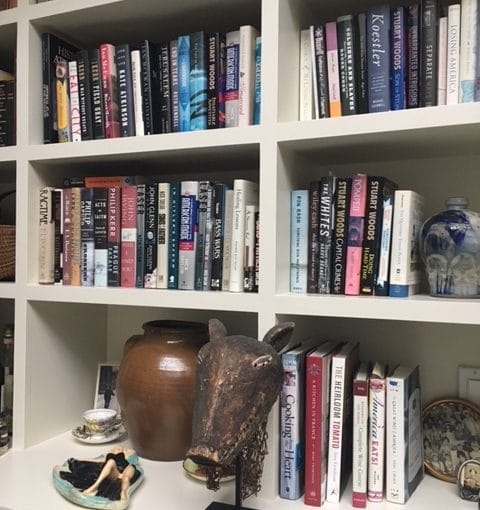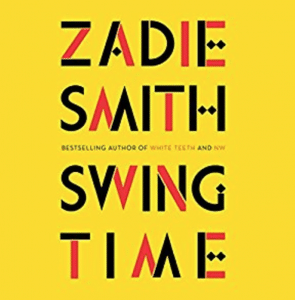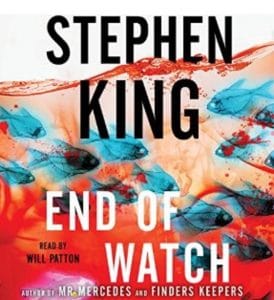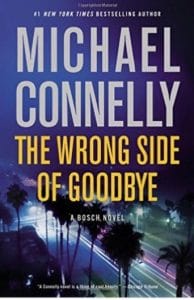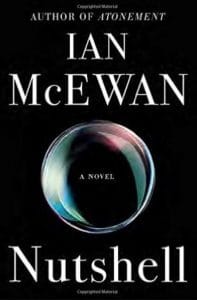“There is a core decency in this country,” President Obama said at his final news conference. “There are a lot more good people than bad in this country”
His last meeting with reporters displayed his optimism and it’s worth watching and reading.
THE PRESIDENT: Good afternoon, everybody. Let me start out by saying that I was sorely tempted to wear a tan suit today — (laughter) — for my last press conference. But Michelle, whose fashion sense is a little better than mine, tells me that’s not appropriate in January.
I covered a lot of the ground that I would want to cover in my farewell address last week. So I’m just going to say a couple of quick things before I start taking questions.
First, we have been in touch with the Bush family today, after hearing about President George H.W. Bush and Barbara Bush being admitted to the hospital this morning. They have not only dedicated their lives to this country, they have been a constant source of friendship and support and good counsel for Michelle and me over the years. They are as fine a couple as we know. And so we want to send our prayers and our love to them. Really good people.
Second thing I want to do is to thank all of you. Some of you have been covering me for a long time — folks like Christi and Win. Some of you I’ve just gotten to know. We have traveled the world together. We’ve hit a few singles, a few doubles together. I’ve offered advice that I thought was pretty sound, like “don’t do stupid…stuff.” (Laughter.) And even when you complained about my long answers, I just want you to know that the only reason they were long was because you asked six-part questions. (Laughter.)
But I have enjoyed working with all of you. That does not, of course, mean that I’ve enjoyed every story that you have filed. But that’s the point of this relationship. You’re not supposed to be sycophants, you’re supposed to be skeptics. You’re supposed to ask me tough questions. You’re not supposed to be complimentary, but you’re supposed to cast a critical eye on folks who hold enormous power and make sure that we are accountable to the people who sent us here.
And you have done that. And you’ve done it, for the most part, in ways that I could appreciate for fairness even if I didn’t always agree with your conclusions. And having you in this building has made this place work better. It keeps us honest. It makes us work harder. It made us think about how we are doing what we do and whether or not we’re able to deliver on what’s been requested by our constituents.
And for example, every time you’ve asked “why haven’t you cured Ebola yet,” or “why is that still that hole in the Gulf,” it has given me the ability to go back to my team and say, “will you get this solved before the next press conference?” (Laughter.)
I spent a lot of time in my farewell address talking about the state of our democracy. It goes without saying that essential to that is a free press. That is part of how this place, this country, this grand experiment in self-government has to work. It doesn’t work if we don’t have a well-informed citizenry. And you are the conduit through which they receive the information about what’s taking place in the halls of power.
So America needs you, and our democracy needs you. We need you to establish a baseline of facts and evidence that we can use as a starting point for the kind of reasoned and informed debates that ultimately lead to progress. And so my hope is, is that you will continue with the same tenacity that you showed us to do the hard work of getting to the bottom of stories and getting them right, and to push those of us in power to be the best version of ourselves. And to push this country to be the best version of itself.
I have no doubt that you will do so. I’m looking forward to being an active consumer of your work rather than always the subject of it. I want to thank you all for your extraordinary service to our democracy.
And with that, I will take some questions. And I will start with Jeff Mason — whose term apparently is not up. I thought we’d be going out together, brother, but you got to hang around for a while. (Laughter.)
Q I’m staying put.
THE PRESIDENT: Jeff Mason, Reuters.
Q Thank you, sir. Are you concerned, Mr. President, that commuting Chelsea Manning’s sentence will send a message that leaking classified material will not generate a tough sentence to groups like WikiLeaks? How do you reconcile that in light of WikiLeaks’ connection to Russia’s hacking in last year’s election? And related to that, Julian Assange has now offered to come to the United States. Are you seeking that? And would he be charged or arrested if he came here?
THE PRESIDENT: Well, first of all, let’s be clear, Chelsea Manning has served a tough prison sentence. So the notion that the average person who was thinking about disclosing vital, classified information would think that it goes unpunished I don’t think would get that impression from the sentence that Chelsea Manning has served.
It has been my view that given she went to trial, that due process was carried out, that she took responsibility for her crime, that the sentence that she received was very disproportional — disproportionate relative to what other leakers had received, and that she had served a significant amount of time, that it made it sense to commute — and not pardon — her sentence.
And I feel very comfortable that justice has been served and that a message has still been sent that when it comes to our national security, that wherever possible, we need folks who may have legitimate concerns about the actions of government or their superiors or the agencies in which they work — that they try to work through the established channels and avail themselves of the whistleblower protections that had been put in place.
I recognize that there’s some folks who think they’re not enough, and I think all of us, when we’re working in big institutions, may find ourselves at times at odds with policies that are set. But when it comes to national security, we’re often dealing with people in the field whose lives may be put at risk, or the safety and security and the ability of our military or our intelligence teams or embassies to function effectively. And that has to be kept in mind.
So with respect to WikiLeaks, I don’t see a contradiction. First of all, I haven’t commented on WikiLeaks, generally. The conclusions of the intelligence community with respect to the Russian hacking were not conclusive as to whether WikiLeaks was witting or not in being the conduit through which we heard about the DNC emails that were leaked.
I don’t pay a lot of attention to Mr. Assange’s tweets, so that wasn’t a consideration in this instance. And I’d refer you to the Justice Department for any criminal investigations, indictments, extradition issues that may come up with him.
What I can say broadly is that, in this new cyber age, we’re going to have to make sure that we continually work to find the right balance of accountability and openness and transparency that is the hallmark of our democracy, but also recognize that there are adversaries and bad actors out there who want to use that same openness in ways that hurt us — whether that’s in trying to commit financial crimes, or trying to commit acts of terrorism, or folks who want to interfere with our elections.
And we’re going to have to continually build the kind of architecture that makes sure the best of our democracy is preserved; that our national security and intelligence agencies have the ability to carry out policy without advertising to our adversaries what it is that we’re doing, but do so in a way that still keeps citizens up to speed on what their government is doing on their behalf.
But with respect to Chelsea Manning, I looked at the particulars of this case the same way I have for the other commutations and pardons that I’ve done, and I felt that in light of all the circumstances that commuting her sentence was entirely appropriate.
Margaret Brennan.
Q Mr. President, thank you. The President-elect has said that he would consider lifting sanctions on Russia if they substantially reduced their nuclear stockpile. Given your own efforts at arms control, do you think that’s an effective strategy? Knowing this office and Mr. Trump, how would you advise his advisors to help him be effective when he deals with Vladimir Putin? And given your actions recently on Russia, do you think those sanctions should be viewed as leverage?
THE PRESIDENT: Well, a couple of things. Number one, I think it is in America’s interest and the world’s interest that we have a constructive relationship with Russia. That’s been my approach throughout my presidency. Where our interests have overlapped, we’ve worked together. At the beginning of my term, I did what I could to encourage Russia to be a constructive member of the international community, and tried to work with the President and the government of Russia in helping them diversify their economy, improve their economy, use the incredible talents of the Russian people in more constructive ways.
I think it’s fair to say that after President Putin came back into the presidency that an escalating anti-American rhetoric and an approach to global affairs that seemed to be premised on the idea that whatever America is trying to do must be bad for Russia and so we want to try and counteract whatever they do — that return to an adversarial spirit that I think existed during the Cold War has made the relationship more difficult. And it was hammered home when Russia went into Crimea and portions of Ukraine.
The reason we imposed the sanctions, recall, was not because of nuclear weapons issues. It was because the independence and sovereignty of a country, Ukraine, had been encroached upon, by force, by Russia. That wasn’t our judgment; that was the judgment of the entire international community. And Russia continues to occupy Ukrainian territory and meddle in Ukrainian affairs and support military surrogates who have violated basic international law and international norms.
What I’ve said to the Russians is, as soon as you’ve stop doing that the sanctions will be removed. And I think it would probably best serve not only American interest but also the interest of preserving international norms if we made sure that we don’t confuse why these sanctions have been imposed with a whole set of other issues.
On nuclear issues, in my first term we negotiated the START II treaty. and that has substantially reduced our nuclear stockpiles, both Russia and the United States. I was prepared to go further. I told President Putin I was prepared to go further. They have been unwilling to negotiate. If President-elect Trump is able to restart those talks in a serious way, I think there remains a lot of room for our two countries to reduce our stockpiles. And part of the reason we’ve been successful on our nonproliferation agenda and on our nuclear security agenda is because we were leading by example.
I hope that continues. But I think it’s important just to remember that the reason sanctions have been put in place against Russia has to do with their actions in Ukraine. And it is important for the United States to stand up for the basic principle that big countries don’t go around and invade and bully smaller countries. I’ve said before, I expect Russia and Ukraine to have a strong relationship. They are, historically, bound together in all sorts of cultural and social ways. But Ukraine is an independent country.
And this is a good example of the vital role that America has to continue to play around the world in preserving basic norms and values, whether it’s advocating on behalf of human rights, advocating on behalf of women’s rights, advocating on behalf of freedom of the press.
The United States has not always been perfect in this regard. There are times where we, by necessity, are dealing with allies or friends or partners who, themselves, are not meeting the standards that we would like to see met when it comes to international rules and norms. But I can tell you that in every multilateral setting — in the United Nations, in the G20, in the G7 — the United States typically has been on the right side of these issues. And it is important for us to continue to be on the right side of these issues, because if we, the largest, strongest country and democracy in the world, are not willing to stand up on behalf of these values, then certainly China, Russia, and others will not.
Kevin Corke.
Q Thank you, Mr. President. You have been a strong supporter of the idea of a peaceful transfer of power, demonstrated not terribly far from the Rose Garden. And yet, even as you and I speak, there are more than five dozen Democrats that are going to boycott the inauguration of the incoming President. Do you support that? And what message would you send to Democrats to better demonstrate the peaceful transfer of power?
And if I could follow, I wanted to ask you about your conversations with the President-elect previously. And without getting into too much of the personal side of it, I’m just curious, were you able to use that opportunity to convince him to take a fresh look at some of the important ideas that you will leave this office with — maintaining some semblance of the Affordable Care Act, some idea of keeping DREAMers here in the country without fear of deportation. Were you able to use personal stories to try to convince him? And how successful were you?
THE PRESIDENT: Well, I won’t go into details of my conversations with President-elect Trump. As I’ve said before, they are cordial. At times they’ve been fairly lengthy and they’ve been substantive. I can’t tell you how convincing I’ve been. I think you’d had to ask him whether I’ve been convincing or not.
I have offered my best advice, counsel about certain issues both foreign and domestic. And my working assumption is, is that having won an election opposed to a number of my initiatives and certain aspects of my vision for where the country needs to go, it is appropriate for him to go forward with his vision and his values. And I don’t expect that there’s going to be enormous overlap.
It may be that on certain issues, once he comes into office and he looks at the complexities of how to, in fact, provide health care for everybody — something he says he wants to do — or wants to make sure that he is encouraging job creation and wage growth in this country, that that may lead him to some of the same conclusions that I arrived at once I got here.
But I don’t think we’ll know until he has an actual chance to get sworn in and sit behind that desk. And I think a lot of his views are going to be shaped by his advisors, the people around him — which is why it’s important to pay attention to these confirmation hearings.
I can tell you that — and this is something I have told him — that this is a job of such magnitude that you can’t do it by yourself. You are enormously reliant on a team. Your Cabinet, your senior White House staff, all the way to fairly junior folks in their 20s and 30s, but who are executing on significant responsibilities.
And so how you put a team together to make sure that they’re getting you the best information and they are teeing up the options from which you will ultimately make decisions, that’s probably the most useful advice, the most constructive advice that I’ve been able to give him. That if you find yourself isolated because the process breaks down, or if you’re only hearing from people who agree with you on everything, or if you haven’t created a process that is fact-checking and probing and asking hard questions about policies or promises that you’ve made, that’s when you start making mistakes. And as I indicated in some of my previous remarks, reality has a way of biting back if you’re not paying attention to it.
With respect to the inauguration, I’m not going to comment on those issues. All I know is I’m going to be there. So is Michelle. And I have been checking the weather, and I’m heartened by the fact that it won’t be as cold as my first inauguration — (laughter) — because that was cold.
Jen Rodriguez.
Q Right here, Mr. President. Thank you very much. You have said that you would come back to fight for the DREAMers. You said that a couple of weeks ago. Are you fearful for the status of those DREAMers, the future of the young immigrants and all immigrants in this country with the new administration? And what did you mean when you said you would come back? Would you lobby Congress? Maybe explore the political arena again? And if I may ask you a second question — why did you take action on “dry foot, wet foot” a week ago?
THE PRESIDENT: Well, let me be absolutely clear. I did not mean that I was going to be running for anything anytime soon. (Laughter.) What I meant is that it’s important for me to take some time to process this amazing experience that we’ve gone through; to make sure that my wife, with whom I will be celebrating a 25th anniversary this year, is willing to re-up and put up with me for a little bit longer. I want to do some writing. I want to be quiet a little bit and not hear myself talk so darn much. I want to spend precious time with my girls.
So those are my priorities this year. But as I said before, I’m still a citizen. And I think it is important for Democrats or progressives who feel that they came out on the wrong side of this election to be able to distinguish between the normal back-and-forth, ebb and flow of policy — are we going to raise taxes or are we going to lower taxes; are we going to expand this program or eliminate this program; how concerned are we about air pollution or climate change. Those are all normal parts of the debate. And as I’ve said before, in a democracy, sometimes you’re going to win on those issues and sometimes you’re going to lose.
I’m confident about the rightness of my positions on a lot of these points, but we got a new President and a Congress that are going to make their same determinations. And there will be a back-and-forth in Congress around those issues, and you guys will report on all that.
But there’s difference between that normal functioning of politics and certain issues or certain moments where I think our core values may be at stake. I put in that category, if I saw systematic discrimination being ratified in some fashion. I’d put in that category, explicit or functional obstacles to people being able to vote, to exercise their franchise. I’d put in that category, institutional efforts to silence dissent or the press.
And for me, at least, I would put in that category, efforts to round up kids who have grown up here and for all practical purposes are American kids and send them someplace else when they love this country; they are our kids’ friends and their classmates, and are now entering into community colleges or, in some cases, serving in our military. The notion that we would just arbitrarily, or because of politics, punish those kids when they didn’t do anything wrong themselves I think would be something that would merit me speaking out. It doesn’t mean that I would get on the ballot anywhere.
With respect to “wet foot, dry foot,” we underwent a monumental shift in our policy towards Cuba. My view was, after 50 years of a policy not working, it made sense for us to try to reopen diplomatic relations, to engage a Cuban government, to be honest with them about the strong disagreements we have around political repression and treatment of dissenters and freedom of press and freedom of religion, but that to make progress for the Cuban people, our best shot was to suddenly have the Cuban people interacting with Americans, and seeing the incredible success of the Cuban American community, and engaging in commerce and business and trade, and that it was through that process of opening up these bilateral relations that you would see over time serious and significant improvement.
Given that shift in the relationship, the policy that we had in place was “wet foot, dry foot,” which treated Cuban emigres completely different from folks from El Salvador, or Guatemala, or Nicaragua, or any other part of the world, one that made a distinction between whether you got here by land or by foot — that was a carryover of a old way of thinking that didn’t make sense in this day and age, particularly as we’re opening up travel between the two countries.
And so we had very lengthy consultations with the Department of Homeland Security. We had some tough negotiations with the Cuban government. But we arrived at a policy which we think is both fair and appropriate to the changing nature of the relationship between the two countries.
Nadia Bilbassy.
Q Thank you, sir. I appreciate the opportunity, and I want you and your family best of luck in the future.
THE PRESIDENT: Thank you.
Q Mr. President, you have been criticized and even personally attacked for the U.N. Security Council resolution that considered the Israeli settlements illegal and an obstacle to peace. Mr. Trump promised to move the embassy to Jerusalem. He appointed an ambassador that doesn’t believe in the two-state solution. How worried are you about the U.S. leadership in the Arab world and beyond as an honest broker? Will this ignite a third intifada? Will this even protect Israel? And in retrospect, do you think that you should have held Israel more accountable, like President Bush, Senior, did with the loan guarantees? Thank you.
THE PRESIDENT: I continue to be significantly worried about the Israeli-Palestinian issue. And I’m worried about it both because I think the status quo is unsustainable, that it is dangerous for Israel, that it is bad for Palestinians, it is bad for the region, and it is bad for America’s national security.
And I came into this office wanting to do everything I could to encourage serious peace talks between Israelis and Palestinians. And we invested a lot of energy, a lot of time, a lot of effort, first year, second year, all the way until last year. Ultimately, what has always been clear is that we cannot force the parties to arrive at peace. What we can do is facilitate, provide a platform, encourage. But we can’t force them to do it.
But in light of shifts in Israeli politics and Palestinian politics; a rightward drift in Israeli politics; a weakening of President Abbas’s ability to move and take risks on behalf of peace in the Palestinian Territories; in light of all the dangers that have emerged in the region and the understandable fears that Israelis may have about the chaos and rise of groups like ISIL and the deterioration of Syria — in light of all those things, what we at least wanted to do, understanding that the two parties wouldn’t actually arrive at a final status agreement, is to preserve the possibility of a two-state solution. Because we do not see an alternative to it.
And I’ve said this directly to Prime Minister Netanyahu. I’ve said it inside of Israel. I’ve said it to Palestinians, as well. I don’t see how this issues gets resolved in a way that maintains Israel as both Jewish and a democracy, because if you do not have two states, then in some form or fashion you are extending an occupation, functionally you end up having one state in which millions of people are disenfranchised and operate as second-class occupant — residents. You can’t even call them citizens, necessarily.
And so the goal of the resolution was to simply say that the settlements — the growth of the settlements are creating a reality on the ground that increasingly will make a two-state solution impossible. And we believed, consistent with the position that had been taken with previous U.S. administrations for decades now, that it was important for us to send a signal, a wake-up call, that this moment may be passing, and Israeli voters and Palestinians need to understand that this moment may be passing. And hopefully that, then, creates a debate inside both Israeli and Palestinian communities that won’t result immediately in peace, but at least will lead to a more sober assessment of what the alternatives are.
So the President-elect will have his own policy. The ambassador — or the candidate for the ambassadorship obviously has very different views than I do. That is their prerogative. That’s part of what happens after elections. And I think my views are clear. We’ll see how their approach plays itself out.
I don’t want to project today what could end up happening, but obviously it’s a volatile environment. What we’ve seen in the past is, when sudden, unilateral moves are made that speak to some of the core issues and sensitivities of either side, that can be explosive. And what we’ve tried to do in the transition is just to provide the context in which the President-elect may want to make some of these decisions.
Q Are you worried that this (inaudible) —
THE PRESIDENT: Well, that’s part of what we’ve tried to indicate to the incoming team in our transition process, is pay attention to this, because this is volatile stuff. People feel deeply and passionately about this. And as I’ve said I think many times, the actions that we take have enormous consequences and ramifications.
We’re the biggest kid on the block. And I think it is right and appropriate for a new President to test old assumptions and reexamine the old ways of doing things. But if you’re going to make big shifts in policy, just make sure you’ve thought it through, and understand that there are going to be consequences, and actions typically create reactions, and so you want to be intentional about it. You don’t want to do things off the cuff when it comes to an issue this volatile.
Chris Johnson.
Q On LGBT rights —
THE PRESIDENT: I’m sorry, where is Chris?
Q I’m right here in the back.
THE PRESIDENT: I’m sorry, didn’t see you.
Q On LGBT rights, we’ve seen a lot of achievements over the past eight years, including signing hate crimes protection legislation, “don’t ask, don’t tell” repeal, marriage equality nationwide, and ensuring transgender people feel visible and accepted. How do you think LGBT rights will rank in terms of your accomplishments and your legacy? And how confident are you that progress will endure or continue under the President-elect?
THE PRESIDENT: I could not be prouder of the transformation that’s taken place in our society just in the last decade. And I’ve said before, I think we made some useful contributions to it, but the primary heroes in this stage of our growth as a democracy and a society are all the individual activists, and sons and daughters and couples who courageously said, this is who I am and I’m proud of it.
And that opened people’s minds and opened their hearts. And, eventually, laws caught up. But I don’t think any of that would have happened without the activism — in some cases, loud and noisy, but in some cases, just quiet and very personal.
And I think that what we did as an administration was to help the society to move in a better direction, but to do so in a way that didn’t create an enormous backlash, and was systematic and respectful of the fact that, in some cases, these issues were controversial.
I think the way we handled, for example, “don’t ask, don’t tell” — being methodical about it, working with the Joint Chiefs, making sure that we showed this would not have an impact on the effectiveness of the greatest military on Earth — and then to have Defense Secretary Bob Gates and Chairman Mike Mullen and a Joint Chiefs who were open to evidence and ultimately worked with me to do the right thing — I am proud of that. But, again, none of that would have happened without this incredible transformation that was happening in society out there.
You know, when I gave Ellen the Presidential Medal of Freedom, I meant what I said. I think somebody that kind and likeable projecting into living rooms around the country — that changed attitudes. And that wasn’t easy to do for her. And that’s just one small example of what was happening in countless communities all across the country.
So I’m proud that in certain places we maybe provided a good block downfield to help the movement advance.
I don’t think it is something that will be reversible because American society has changed; the attitudes of young people, in particular, have changed. That doesn’t mean there aren’t going to be some fights that are important — legal issues, issues surrounding transgender persons — there are still going to be some battles that need to take place.
But if you talk to young people of Malia, Sasha’s generation, even if they’re Republicans, even if they’re conservative, many of them would tell you, I don’t understand how you would discriminate against somebody because of sexual orientation. That’s just sort of burned into them in pretty powerful ways.
April Ryan.
Q Thank you, Mr. President. Long before today you’ve been considered a rights President. Under your watch, people have said that you have expanded the rubber band of inclusion. And with the election and the incoming administration, people are saying that rubber band has recoiled and maybe is even broken. And I’m taking you back to a time on Air Force One going to Selma, Alabama, when you said your job was to close the gaps that remain. And with that, what gaps still remain when it comes to rights issues on the table? And also what part will you play in fixing those gaps after — in your new life?
And lastly, you are the first black President. Do you expect this country to see this again?
THE PRESIDENT: Well, I’ll answer the last question first. I think we’re going to see people of merit rise up from every race, faith, corner of this country, because that’s America’s strength. When we have everybody getting a chance and everybody is on the field, we end up being better.
I think I’ve used this analogy before. We killed it in the Olympics in Brazil. And Michelle and I, we always have our — the Olympic team here. And it’s a lot of fun, first of all, just because anytime you’re meeting somebody who is the best at anything, it’s impressive. And these mostly very young people are all just so healthy-looking, and they just beam and exude fitness and health. And so we have a great time talking to them.
But they are of all shapes, sizes, colors — the genetic diversity that is on display is remarkable. And if you look at a Simone Biles, and then you look at a Michael Phelps, they’re completely different. And it’s precisely because of those differences that we’ve got people here who can excel at any sport.
And, by the way, more than half of our medals came from women. And the reason is, is because we had the foresight several decades ago, with something called Title 9, to make sure that women got opportunities in sports, which is why our women compete better — because they have more opportunities than folks in other countries.
So I use that as a metaphor. And if, in fact, we continue to keep opportunity open to everybody, then, yes, we’re going to have a woman President, we’re going to have a Latino President, and we’ll have a Jewish President, a Hindu President. Who knows who we’re going to have? I suspect we’ll have a whole bunch of mixed-up Presidents at some point that nobody really knows what to call them. (Laughter.) And that’s fine.
But what do I worry about? I obviously spent a lot of time on this, April, at my farewell address on Tuesday, so I won’t go through the whole list. I worry about inequality, because I think that if we are not investing in making sure everybody plays a role in this economy, the economy will not grow as fast, and I think it will also lead to further and further separation between us as Americans — not just along racial lines. There are a whole bunch of folks who voted for the President-elect because they feel forgotten and disenfranchised. They feel as if they’re being looked down on. They feel as if their kids aren’t going to have the same opportunities as they did.
And you don’t want to have an America in which a very small sliver of people are doing really well and everybody else is fighting for scraps, as I said last week. Because that’s oftentimes when racial divisions get magnified, because people think, well, the only way I’m going to get ahead is if I make sure somebody else gets less, somebody who doesn’t look like me or doesn’t worship at the same place I do. That’s not a good recipe for our democracy.
I worry about, as I said in response to a previous question, making sure that the basic machinery of our democracy works better. We are the only country in the advanced world that makes it harder to vote rather than easier. And that dates back — there’s an ugly history to that that we should not be shy about talking about.
Q Voting rights?
THE PRESIDENT: Yes, I’m talking about voting rights. The reason that we are the only country among advanced democracies that makes it harder to vote is it traces directly back to Jim Crow and the legacy of slavery. And it became sort of acceptable to restrict the franchise. And that’s not who we are. That shouldn’t be who we are. That’s not when America works best.
So I hope that people pay a lot of attention to making sure that everybody has a chance to vote. Make it easier, not harder. This whole notion of election — of voting fraud, this is something that has constantly been disproved. This is fake news — the notion that there are a whole bunch of people out there who are going out there and are not eligible to vote and want to vote. We have the opposite problem. We have a whole bunch of people who are eligible to vote who don’t vote. And so the idea that we’d put in place a whole bunch of barriers to people voting doesn’t make sense.
And then, as I’ve said before, political gerrymandering that makes your vote matter less because politicians have decided you live in a district where everybody votes the same way you do so that these aren’t competitive races, and we get 90 percent Democratic districts, 90 percent Republican districts — that’s bad for our democracy, too. I worry about that.
I think it is very important for us to make sure that our criminal justice system is fair and just. But I also think it’s also very important to make sure that it is not politicized, that it maintains an integrity that is outside of partisan politics at every level.
I think at some point we’re going to have to spend — and this will require some action by the Supreme Court — we have to reexamine just the flood of endless money that goes into our politics, which I think is very unhealthy.
So there are a whole bunch of things I worry about there. And as I said in my speech on Tuesday, we got more work to do on race. It is not — it is simply not true that things have gotten worse. They haven’t. Things are getting better. And I have more confidence on racial issues in the next generation than I do in our generation or the previous generation. I think kids are smarter about it. They’re more tolerant. They are more inclusive by instinct than we are. And hopefully my presidency maybe helped that along a little bit.
But, you know, we — when we feel stress, when we feel pressure, when we’re just fed information that encourages some of our worst instincts, we tend to fall back into some of the old racial fears and racial divisions and racial stereotypes. And it’s very hard for us to break out of those, and to listen, and to think about people as people, and to imagine being in that person’s shoes.
And by the way, it’s no longer a black and white issue alone. You got Hispanic folks, and you got Asian folks, and this is not just the same old battles. We’ve got this stew that’s bubbling up of people from everywhere. And we’re going to have to make sure that we, in our own lives, in our own families and workplaces, do a better job of treating everybody with basic respect. And understanding that not everybody starts off in the same situation, and imagining what would it be like if you were born in an inner city and had no job prospects anywhere within a 20-mile radius, or how does it feel being born in some rural county where there’s no job opportunities in a 20-mile radius — and seeing those two things as connected as opposed to separate.
So we got work to do. But, overall, I think on this front, the trend lines ultimately, I think, will be good.
Christi Parsons. And Christi, you are going to get the last question.
Q Oh, no. (Laughter and groans.)
THE PRESIDENT: Christi is — I’ve been knowing her since Springfield, Illinois. When I was a state senator, she listened to what I had to say. (Laughter.) So the least I can do is give her the last question as President of the United States.
Go on.
Q 217 numbers still work.
THE PRESIDENT: There you go. Go ahead.
Q Well, thank you, Mr. President. It has been an honor.
THE PRESIDENT: Thank you.
Q And I have a personal question for you, because I know how much you like this. The First Lady puts the stakes of the 2016 election in very personal terms in a speech that resonated across the country, and she really spoke the concerns of a lot of women, LGBT folks, people of color, many others. And so I wonder now how you and the First Lady are talking to your daughters about the meaning of this election and how you interpret it for yourself and for them.
THE PRESIDENT: You know, every parent brags on their daughters or their sons. If your mom and dad don’t brag on you, you know you got problems. (Laughter.) But, man, my daughters are something, and they just surprise and enchant and impress me more and more every single day as they grow up. And so these days, when we talk, we talk as parent to child, but also we learn from them.
And I think it was really interesting to see how Malia and Sasha reacted. They were disappointed. They paid attention to what their mom said during the campaign and believed it because it’s consistent with what we’ve tried to teach them in our household, and what I’ve tried to model as a father with their mom, and what we’ve asked them to expect from future boyfriends or spouses.
But what we’ve also tried to teach them is resilience, and we’ve tried to teach them hope, and that the only thing that is the end of the world is the end of the world. And so you get knocked down, you get up, brush yourself off, and you get back to work. And that tended to be their attitude.
I think neither of them intend to pursue a future of politics — and, in that, too, I think their mother’s influence shows. (Laughter.) But both of them have grown up in an environment where I think they could not help but be patriotic, to love this country deeply, to see that it’s flawed but see that they have responsibilities to fix it. And that they need to be active citizens, and they have to be in a position to talk to their friends and their teachers and their future coworkers in ways that try to shed some light as opposed to just generate a lot of sound and fury.
And I expect that’s what they’re going to do. They do not — they don’t mope. And what I really am proud of them — what makes me proudest about them is that they also don’t get cynical about it. They have not assumed because their side didn’t win, or because some of the values that they care about don’t seem as if they were vindicated, that automatically America has somehow rejected them or rejected their values. I don’t think they feel that way.
I think that they have, in part through osmosis, in part through dinnertime conversations, appreciated the fact that this is a big, complicated country, and democracy is messy and it doesn’t always work exactly the way you might want, it doesn’t guarantee certain outcomes. But if you’re engaged and you’re involved, then there are a lot more good people than bad in this country, and there’s a core decency to this country, and that they got to be a part of lifting that up.
And I expect they will be. And in that sense, they are representative of this generation that makes me really optimistic.
I’ve been asked — I’ve had some off-the-record conversations with some journalists where they said, okay, you seem like you’re okay, but really, really, what are you thinking? (Laughter.) And I’ve said, no, what I’m saying really is what I think. I believe in this country. I believe in the American people. I believe that people are more good than bad. I believe tragic things happen, I think there’s evil in the world, but I think that at the end of the day, if we work hard, and if we’re true to those things in us that feel true and feel right, that the world gets a little better each time.
That’s what this presidency has tried to be about. And I see that in the young people I’ve worked with. I couldn’t be prouder of them. And so this is not just a matter of “No Drama Obama” — this is what I really believe. It is true that behind closed doors I curse more than I do publicly. (Laughter.) And sometimes I get mad and frustrated, like everybody else does. But at my core, I think we’re going to be okay. We just have to fight for it. We have to work for it, and not take it for granted. And I know that you will help us do that.
Thank you very much, press corps. Good luck.
at the end of the day, if we work hard, and if we’re true to those things in us that feel true and feel right, that the world gets a little better each time.
That’s what this presidency has tried to be about. And I see that in the young people I’ve worked with. I couldn’t be prouder of them. And so this is not just a matter of “No Drama Obama” — this is what I really believe. It is true that behind closed doors I curse more than I do publicly. (Laughter.) And sometimes I get mad and frustrated, like everybody else does. But at my core, I think we’re going to be okay. We just have to fight for it. We have to work for it, and not take it for granted. And I know that you will help us do that.
Thank you very much, press corps. Good luck.


